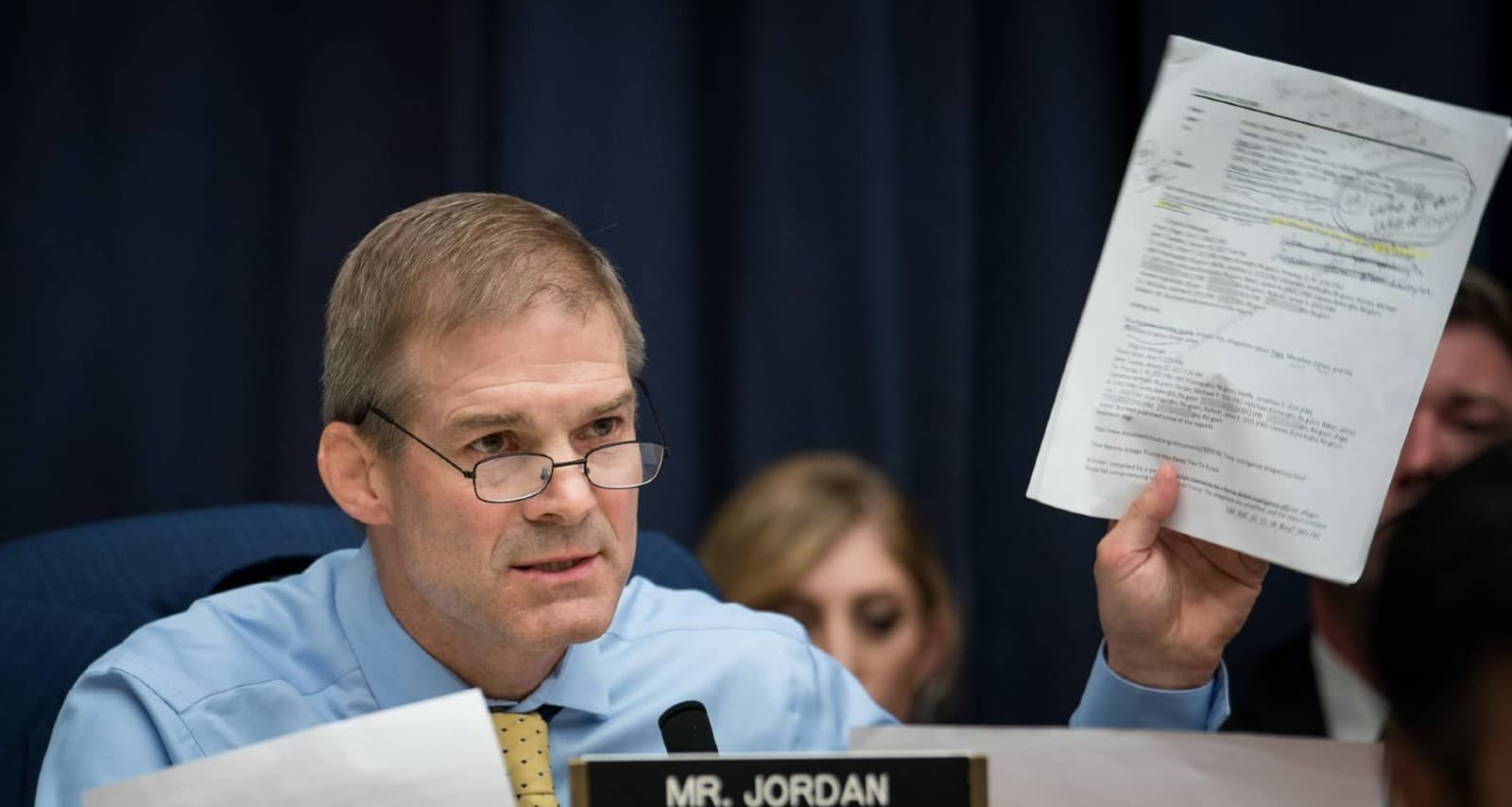OPINION: This article may contain commentary which reflects the author's opinion.
Republicans on the House Judiciary Committee are pushing for broad changes to the government’s FISA surveillance authority, which would, among other things, make it illegal for the FBI to search through phone records of Americans without a judge’s approval.
As several Patriot Act authorities expire at the end of the year, the effort is expected to be completed by then. Legislators told Just the News that there is unusual bipartisan cooperation between Republicans and Democrats on this issue.
“We’ve got, I think, strong agreement amongst members of the Intelligence Committee and members of the Judiciary Committee. And frankly, some Democrats as well, that there needs to be stronger penalties if you abuse the system,” Judiciary Committee Jim Jordan said during an interview with “Just The News.”
Jordan stated that his focus was on the Section 702 system, which allows agents to search phone communications metadata “where they can create this database” without a warrant.
The Foreign Intelligence Surveillance Court declassified a report earlier this year that revealed FBI agents had improperly searched Americans’ phone records more than 270,000 times over two years, alarming civil liberty experts and drawing condemnation from both parties.
“There needs to be more transparency, more accountability, more audits, and more reporting to Congress and the American people,” Jordan said. “So I think we have broad agreement there that those kinds of fundamental changes have to happen.
“But then the real question—maybe the more fundamental question—is: do we require a warrant before you can query any information regarding American citizens?” he added. “I think you should. That’s where the Judiciary Committee members are, and we’re going to try to work through that issue.”
Jordan stated that a more comprehensive overhaul of the government’s enhanced powers under the Foreign Intelligence Surveillance Act, which was put in place following the September 11, 2001, terrorist attacks, would revolve around this significant alteration to Section 702 surveillance.
He declared, “I think there will be a significant overhaul of Section 702, but not the entire FISA.” “The following two months are our target here.”
Rep. Andy Biggs, R-Ariz., who has been facilitating informal discussions between Republicans and Democrats for months to build a bipartisan consensus, complimented Jordan and his colleagues on their cooperative strategy.
“We’ve been working in a task force with the Intel Committee guys,” Biggs said. “I think we’ve reached a lot of harmony on a lot of ideas. The last issue probably is just how we solve some of these issues where the FBI, NSA, and CIA want to go in and look at phone records and other private data points.”
“And that’s where we’re going to solve those…I think we’re going to smooth it out and hopefully be able to get something done before the end of the year. I believe we will,” he added.
Jordan made headlines last week when he announced that the House Judiciary Committee has begun looking into reports that the Justice Department spied on members of Congress and their staff.
Iowa GOP Sen. Chuck Grassley is also looking into allegations that the Department of Justice spied on his former chief investigative counsel, Jason Foster. On Tuesday, Jordan made the investigation public on Fox Business.
“We now know that they spied on congressional staffers,” Jordan said in an appearance on Fox Business’s The Evening Edit with Elizabeth MacDonald. “We want to know, how far does it go? Were they spying on members? Were they spying on other staffers? Keep this in mind, Liz: We know they spied on President Trump’s campaign. We know all that from the FISA Court and what they did with Carter Page and Papadopoulos—everything else. Now we’ve learned that they spied on one of Sen. Grassley’s staff members, Jason Foster.”
“We want to know, does it go further?” he stressed. “So we’ve sent letters not only to the Department of Justice but to all these carriers that the Department of Justice worked with to get the phone records and the email records from congressional staffers like Mr. Foster. How far does this go? Were they spying on members and other staff?”
Jordan wrote to Alphabet, Apple, AT&T, T-Mobile, and Verizon’s CEOs, as well as Attorney General Merrick Garland, requesting information about the DOJ’s alleged attempts to obtain the private communications of members of Congress and their staff as part of the investigation.
“The Justice Department’s efforts to obtain the private communications of congressional staffers, including staffers conducting oversight of the Department, are wholly unacceptable and offend fundamental separation of powers principles as well as Congress’s constitutional authority to conduct oversight of the Department,” the letter to Apple CEO Tim Cook read.
The letter continues by elaborating on the claim that the DOJ issued subpoenas to congressional staffers looking into the DOJ’s Crossfire Hurricane operation on behalf of the House Permanent Select Committee on Intelligence in order to obtain emails and records.
“These revelations strongly suggest that the Justice Department weaponized its law-enforcement authority to spy on the entities seeking to hold it accountable,” the letter stated.
As chairman of the House Judiciary Committee, Jordan has made it a top priority to look into allegations of weaponization of the DOJ during the Biden administration.
The House Judiciary Committee is also investigating allegations of politicization in the Hunter Biden investigation by having federal prosecutors appear for transcribed interviews behind closed doors.
